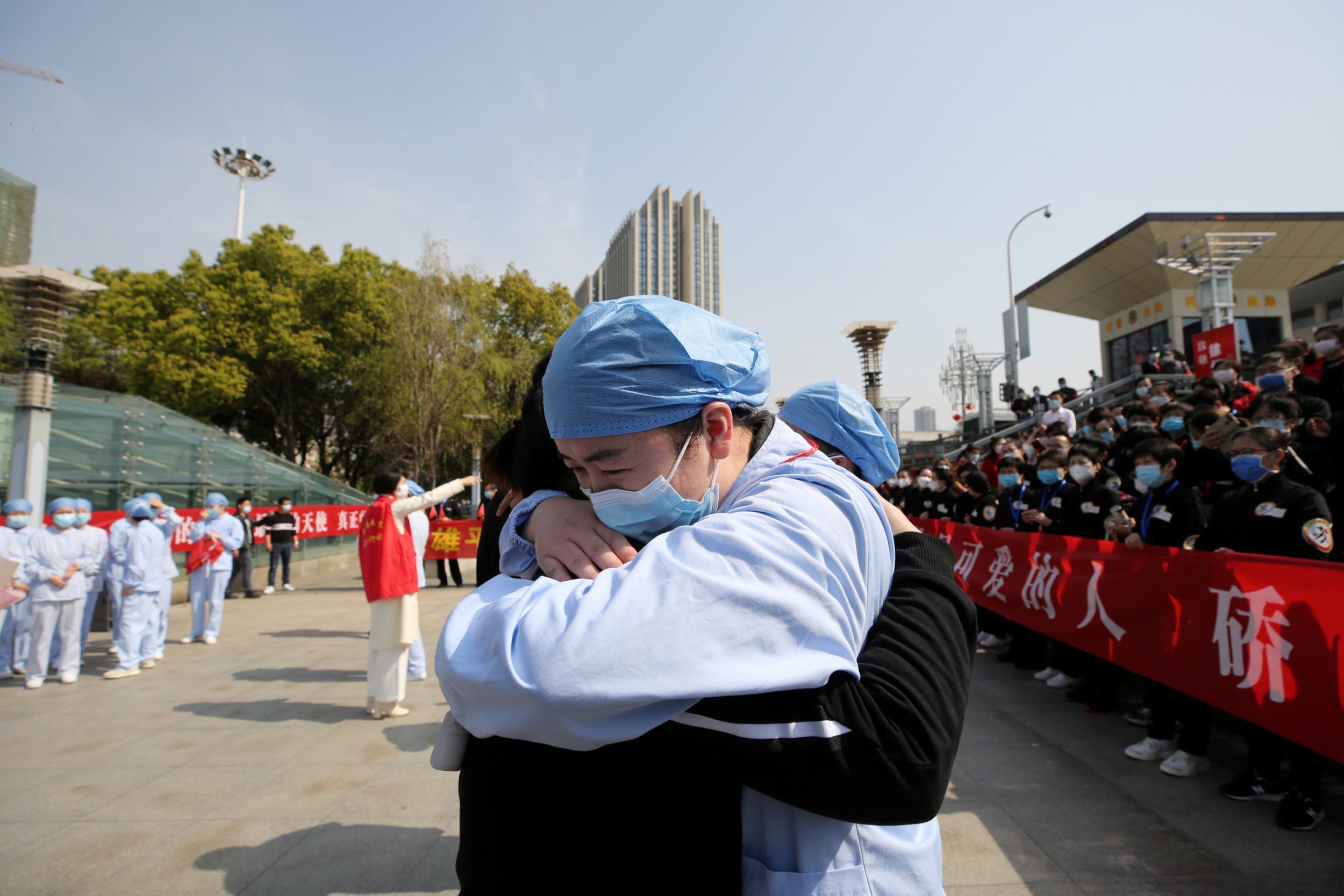‘Today we have seen the dawn’: China reports zero new local coronavirus cases for first time since outbreak began

Chinese officials say they have “seen the dawn” of an end to the coronavirus epidemic, after the country reported zero new cases of local infection for the first time since the outbreak began.
Figures for Wednesday showed there were no new cases at all in Wuhan or the wider Hubei province, where the virus now known as Covid-19 is believed to have first transmitted among humans.
Authorities warned the risk was still not over, though, as 34 cases - all imported from abroad - were reported in other provinces. They included 21 in Beijing and nine in the southern manufacturing hub of Guangdong.
There were also eight new deaths on Wednesday, according to the National Health Commission. bringing the country to a total of 80,928 cases and 3,245 deaths.
Nonetheless, the lack of new local transmissions in Hubei was hailed as a major landmark in the global fight to contain the disease.
“Today we have seen the dawn after so many days of hard effort,” said Jiao Yahui, a senior inspector at the National Health Commission.
Li Yang, an official from Hubei's Center for Disease Control and Prevention, told a news conference that the threat of Covid-19 had not been eliminated and infection risk still persists, at both community and clinic levels.
Wuhan has been under a strict lockdown since January, and remains cut off with only those with special permission allowed to travel in or out.
Officials are moving to loosen travel restrictions, but only inside the surrounding province of Hubei where most checkpoints will be taken down.
The lockdown in Wuhan will only be lifted if no additional cases are reported for two consecutive weeks, something which could happen as early as next month, Li Lanjuan, a member of the Chinese Academy of Engineering, told local media.
But attention in China and across Asia is increasingly turning from stopping local spread to preventing new cases from arriving abroad. China is even assisting governments in Europe - sending medical supplies to France, for example, returning a favour done by Paris a few weeks ago.
Alarmed by the 21 new cases arriving in Beijing - a record number - the Chinese aviation authority said it had appointed 12 airport companies to assist in diverting international arrivals away from the capital.
A state media report on the announcement did not elaborate which cities the traffic would be diverted to, but the measure is designed to help with effective screening of passengers and isolation of infected travellers.
In Japan, there were only three new infection cases on Wednesday, and the governor of the worst-hit Hokkaido province announced the end of a state of emergency. “From the 20th we move to a new stage to overcome the crisis,” Naomichi Suzuki told reporters.
While mass gatherings are still effectively banned, an expert panel on the virus outbreak was expected to recommend that some schools be reopened and sporting events resumed.
Koji Wada, a member of the panel, told Reuters that “there are some areas where almost all the patients have been identified in the past two weeks”. “So in those areas, it's OK to reopen schools, even now,” he said.
Singapore reported 47 new cases on Wednesday, but of those 33 were imported - including 30 returning Singapore residents, taking the country’s total to 313.
The imported cases had travelled to European countries including the UK, Turkey, France, Germany, Austria, Croatia and Switzerland, as well as India, Indonesia, the Philippines and the US.
South Korea, which has been widely praised for its handling of the outbreak through aggressive testing measures, has reduced its rate of new infections to double digits in recent days. On Wednesday, that jumped to 152 new cases. At the peak of its outbreak, it was reporting upwards of 850 new cases a day.
Comments
Post a Comment